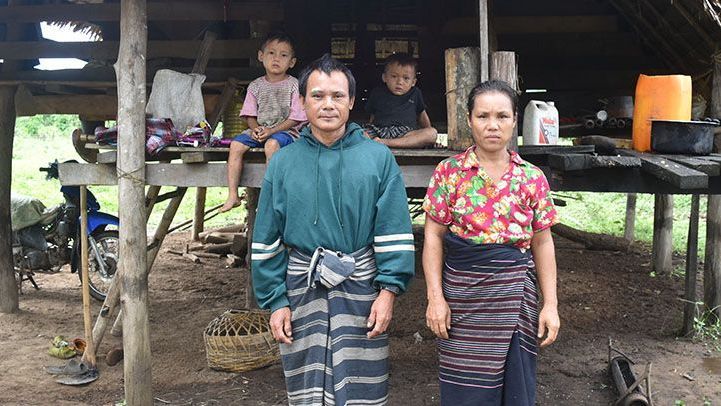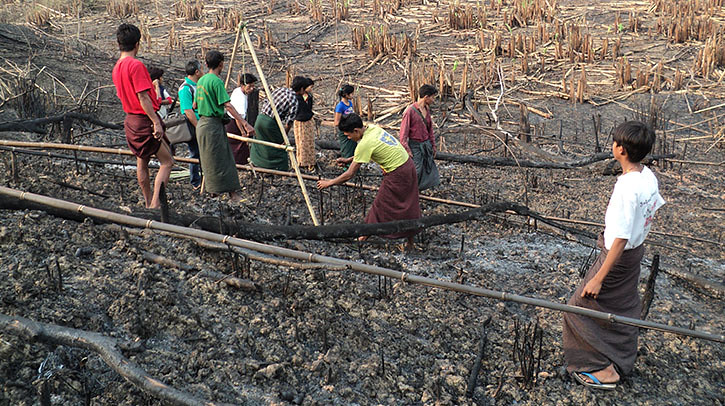Farmers in Myanmar Diversify Crops For Economic Stability

In the wake of severe floods in Myanmar, our hearts and prayers are with the families who lost loved ones and are displaced from impacted areas. Episcopal Relief & Development is in communication with partners. We acknowledge their pain and want to take this time to highlight the importance of preparedness and resilience.
With assistance from Episcopal Relief & Development and local partners, small-crop farmers in Myanmar are finding ways of keeping to their tradition of growing rice, while increasing their overall production and economic stability.
45-year old Mg Kyut Yin is one of these farmers, cultivating two rice paddy farms in the small village of Ta Ree Poe Kwe in Kayin State. He lives with his wife, Naw Paw Lay Hto, their five children and his mother. Although his wife does day labor, and they raise goats and chickens to sell, they always found it hard to make ends meet. He explained, “In the rainy season I worked every day in the farm. After harvest, I did not have a job and had to wait until another rainy season started.”
Our partners in Myanmar recognized that this seasonal pause in production could be an opportunity for farmers like Mg Kyut Yin. Through an integrated development approach, unused church land was mobilized for community use, and asset-based trainings guided families in assessing the nutritional and other benefits of popular seasonal crops.

Okra, varieties of gourds and eggplant, and groundnuts (peanuts) emerged (after much discussion!) as favorite options. Especially groundnuts, as along with being a food source, they require less water than other crops, absorb nitrogen from the air and enrich the soil for the next planting season.
To strengthen community resilience, our partners also offered disaster preparedness training to equip communities to better manage their own response and recovery including asset-mapping, hazard analysis (floods, landslides) and household preparedness kits. Economic opportunities, such as micro-loans or savings programs, are being considered for the future so that households are able to absorb the economic impact of disaster shocks, like the floods in southern Myanmar, and recover faster.
Two years into this transformative process of community partnership, Yin appreciates the many positive impacts. “Now we can grow groundnuts and get more income. Our children can attend school and study. My wife is able to work more hours, and we tithe to our church. It is a great opportunity for us.”
Episcopal Relief & Development partners with communities throughout Myanmar. Below is a series of photos that showcases a farmer training program in Mandalay.

Nagulan Nesiah is the Senior Program Officer for Disaster Response and Risk Reduction.
Images: (Top) Mg Kyut Yin and his wife, Naw Paw Lay Hto; (Middle) Farmers in Mandalay, Myanmar learn new agricultural techniques.
Consider making a contribution to the Global Needs Fund


